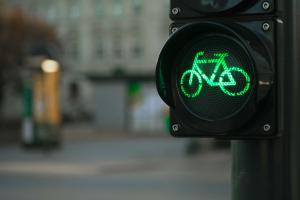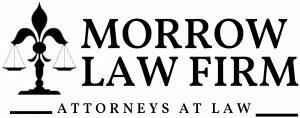
Addressing Accidents Involving Shared Ride Bicycles and Scooters in Louisiana
Understanding the legal implications and steps to take following such accidents is essential for riders, pedestrians, and motorists alike.
William P. Morrow, a lawyer at Morrow Law Firm in Opelousas, Louisiana, emphasizes the complexity of these cases. “Accidents involving shared ride bicycles and scooters often involve unique liability questions, including the responsibility of the rider, the company operating the equipment, and other parties,” Morrow explains.
Common Causes of Shared Ride Bicycle and Scooter Accidents
Accidents involving shared mobility devices can occur for a variety of reasons, including:
Rider Negligence: Inexperienced or careless riders may cause accidents by failing to adhere to traffic laws or riding in unsafe conditions.
Poorly Maintained Equipment: Faulty brakes, worn tires, or other mechanical failures on bicycles or scooters can lead to accidents. Responsibility for maintenance typically falls on the operating company.
Road Hazards: Potholes, uneven pavement, or debris can cause riders to lose control and crash.
Collisions with Motor Vehicles: Drivers who fail to yield, check blind spots, or respect bike lanes may be involved in accidents with cyclists or scooter riders.
Pedestrian Involvement: Shared ride users riding on sidewalks or in pedestrian-heavy areas can create dangerous conditions for walkers.
These scenarios often involve overlapping liabilities and require careful examination of the circumstances.
Legal Responsibilities of Shared Ride Companies
Shared ride companies operating bicycles and scooters have specific obligations to ensure user safety. These include:
Maintaining Equipment: Companies must regularly inspect and repair their fleets to prevent accidents caused by mechanical failures.
Providing Instructions: Clear guidelines on safe operation and local traffic laws must be communicated to users.
Ensuring Accessibility: Properly designated parking areas and operational zones help prevent hazards to pedestrians and other road users.
Failing to meet these responsibilities can make the shared ride company liable for damages in the event of an accident.
Steps to Take Following an Accident
Anyone involved in an accident with a shared ride bicycle or scooter should take the following steps to protect their rights and ensure proper resolution:
1. Seek Immediate Medical Attention
Injuries from bicycle and scooter accidents can range from minor scrapes to severe head trauma or fractures. Prompt medical evaluation ensures that injuries are treated appropriately and documented for potential claims.
2. Document the Scene
Thorough documentation is essential for establishing liability. Key elements to gather include:
Photographs of the accident scene, damaged equipment, and any injuries sustained
Contact information for witnesses
License plate numbers of involved vehicles
Names and identification of other parties involved, including the rider and operator of the shared ride device
3. File a Police Report
A police report provides an official record of the incident and can be critical in resolving disputes over liability.
4. Notify the Shared Ride Company
Most shared ride companies have protocols for reporting accidents involving their equipment. Riders and other parties should contact the company to report the incident and document the response.
5. Contact Insurance Providers
Depending on the circumstances, the at-fault party’s insurance or the shared ride company’s liability coverage may apply. Navigating insurance claims requires understanding the specific policies involved.
Liability in Shared Ride Accidents
Determining liability in shared ride accidents is often complex, as multiple parties may bear responsibility. Potentially liable parties include:
The Rider: If the accident was caused by the rider’s negligence, they may be held liable for damages to other parties or property.
The Shared Ride Company: If equipment failure or inadequate safety measures contributed to the accident, the company may be liable.
Motor Vehicle Drivers: Drivers who fail to exercise caution around bicycles and scooters may be held responsible for accidents they cause.
Government Entities: In cases where poor road conditions or inadequate signage contributed to the accident, local or state government agencies may share liability.
Proper investigation and evidence collection are essential to assigning responsibility accurately.
Louisiana’s Comparative Fault System
Louisiana’s comparative fault laws allow for the apportionment of liability among multiple parties. Under this system, damages are awarded based on the percentage of fault attributed to each party. For example, if a rider is found to be 30% at fault and a driver 70%, the rider’s compensation will be reduced by their 30% share of fault.
This system ensures fairness but requires careful analysis of the facts to determine each party’s role in the accident.
Insurance Coverage and Compensation
Shared ride accidents often involve various insurance policies, including:
Liability Insurance: Covers damages caused by the at-fault party, whether it’s the rider, driver, or shared ride company.
Uninsured/Underinsured Motorist Coverage: Protects individuals when the at-fault party lacks sufficient insurance.
Personal Injury Protection (PIP): May cover medical expenses and lost wages for injured parties, depending on the policies involved.
Navigating these coverages can be challenging, particularly when disputes arise over fault or policy limits.
Conclusion
Accidents involving shared ride bicycles and scooters require a clear understanding of legal responsibilities, liability, and compensation processes. As these devices become more prevalent in Louisiana, addressing the legal complexities of accidents involving them is critical for ensuring fairness and accountability. By taking appropriate steps after an accident and understanding the roles of shared ride companies, riders, and other parties, those affected can work toward a resolution that addresses their needs and protects their rights.
Morgan Thomas
Rhino Digital, LLC
+1 504-875-5036
email us here
Visit us on social media:
Facebook
Distribution channels: Culture, Society & Lifestyle, Insurance Industry, Law
Legal Disclaimer:
EIN Presswire provides this news content "as is" without warranty of any kind. We do not accept any responsibility or liability for the accuracy, content, images, videos, licenses, completeness, legality, or reliability of the information contained in this article. If you have any complaints or copyright issues related to this article, kindly contact the author above.
Submit your press release

